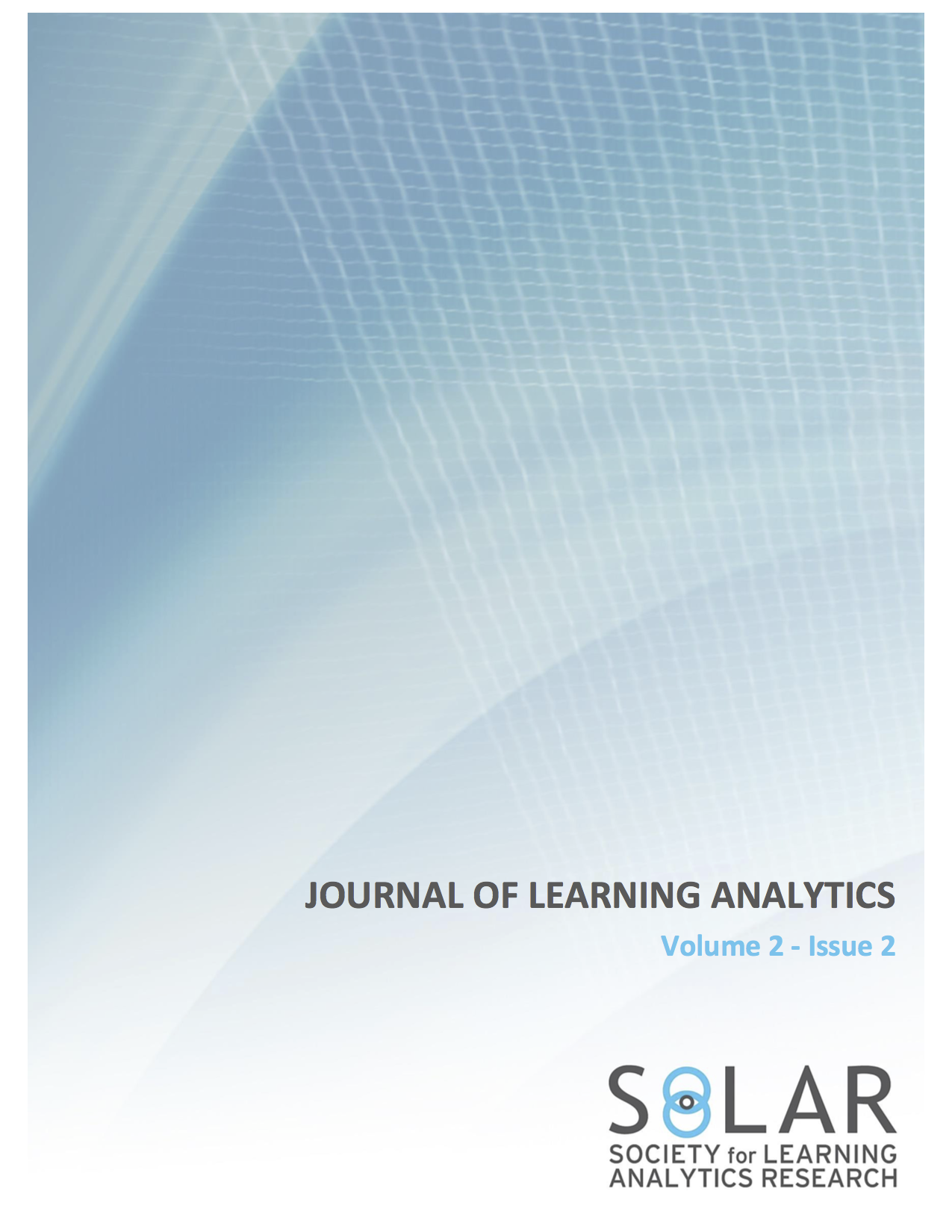Distributed Revisiting: an Analytic for Retention of Coherent Science Learning
DOI:
https://doi.org/10.18608/jla.2015.22.7Keywords:
Learning design, revisiting, distributed practice, knowledge integration, inquiry scienceAbstract
Designing learning experiences that support the development of coherent understanding of complex scientific phenomena is challenging. We sought to identify analytics that can guide such designs to also support retention of coherent understanding. Based on prior research that distributing study of material over time supports retention, we explored revisiting previously studied material as an analytic. We tested ways to operationalize revisiting: as a general propensity to revisit previously studied material; as a propensity to revisit specific curricular steps; as a general propensity to distribute study by revisiting previously studied material on different days; and as a propensity to distribute study by revisiting specific steps on different days. The specific steps identified as central to the learning design included a static illustration and a dynamic visualization. We modeled revisiting in a sample of 664 students taught by 7 different teachers using a Web-based Inquiry Science Environment unit. Analysis of log files and regression modeling revealed that a general propensity to revisit did not predict retention. Revisiting the dynamic visualization better supported retention than revisiting static material, but only for distributed revisiting. Our findings suggest that revisiting can be a useful analytic when aligned to the framework guiding learning design.
Downloads
Published
How to Cite
Issue
Section
License
Copyright (c) 2015 Journal of Learning Analytics

This work is licensed under a Creative Commons Attribution-NonCommercial-NoDerivatives 4.0 International License.
TEST


